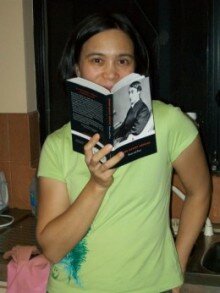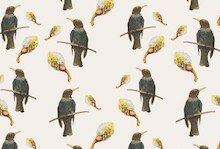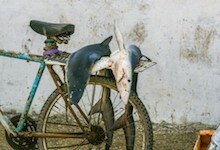
Miriam Wei Wei Lo was born in Canada, raised in Singapore, and has lived in Australia since 1993. She is of Chinese-Malaysian descent on her father’s side and Anglo-Australian on her mother’s side. Lo’s poetry explores family, home and heritage, unfolding the histories that underwrite the everyday realities of living in relation to others in the intimate space of the family and within the broader context and “tangled knots of ethnicity and nationality”. Her poetry explores family histories with openness, sincerity and a gift for characterisation, giving detail and depth to the conflicts and prejudice, nurturing and love, of the strong women of her family.
In an adroit sequence of poems tracing her family’s history from country Australia, China, and Malaysia, Lo’s formidable grandmothers Liang Yue Xian and Eva Sounness are vividly present. Coming into focus through Lo’s work is a deeper portrait of the ethnic, cultural and political divisions and contradictions from which contemporary Australian identity evolves, as well as a vital and realistic picture of how the minutiae of culture and identity reshape us over generations. Lo’s more recent work celebrates the present moment of love, embracing the daily and domestic metamorphoses with clarity and passion.
Lo has studied writing at the universities of Western Australia and Queensland. Her first collection, Against Certain Capture, won the West Australian Premier’s Prize for Poetry in 2005. Her output over the last five years has been small, due to her radical commitment to intensively personal child-rearing, however, the poems she has produced have been widely anthologised, appearing in collections such as Over There: Poems from Singapore and Australia, Windchimes: Asia in Australian Poetry and the most recent Penguin Anthology of Australian Poetry. Miriam currently lives in Margaret River (Western Australia), and when she is not writing, she cooks, cleans, edits her husband’s sermons, and entertains three young children. Her next book is forthcoming with Salt Publishing.
Through this “radical commitment” Lo’s work extends to an acute interrogation of contemporary domestic and familial spaces and relations. She comments, “It really bothers me when anyone fails to see the value of this work, but I constantly encounter people who see housework as ‘less important’ work; these are the people I meet in Singapore who assume that housework and child-minding are ‘maid’s jobs’, these are the people in Australia who can’t understand why I don’t hire a cleaner and put the kids in daycare so I can get on with being an academic or writer, these are the societies whose views of the importance of housework are reflected in the amounts they pay to people who do these jobs for them, so they can be free from ‘everyday life’ to do . . . more important things (whatever they are). OK, if Kevin Rudd had to wash the dishes after all his parties, or if Barack Obama had to keep the White House clean, they wouldn’t have time to do much else, but there was a reason for Gandhi’s famous assertion that politicians ought to clean their own toilets. It is in this context that ‘everyday life’ has become a charged topic for me and for my writing.”
Books
Against Certain Capture, Five Islands Press, Wollongong, NSW, 2004
Essays
‘Towards a Particular Hybridity: A Beginning’, Westerly 44.4 (1999): 9-20. [Perth, Western Australia; ISSN: 0043 342X]
‘Reconfiguring a Necessary Entrapment: A Tale of Two Grandmothers’ in Beyond Good and Evil? Essays on the Literature and Culture of the Asia-Pacific Region, UWAP, Crawley, Western Australia, Dennis Haskell, Megan McKinlay and Pamina Rich, eds, pp.199–209, 2005, ISBN: 1 920694 63 3
Links
Andrew Burke reviews Against Certain Capture
Aaron Lee reviews Against Certain Capture
Adam Aitken interview with Alvin Pang and John Kinsella







